8+ Sample Apartment Lease Contract
-
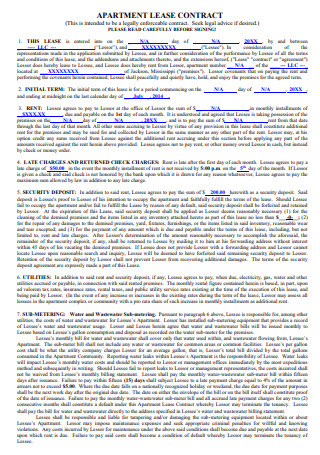
Apartment Lease Contract Template
download now -
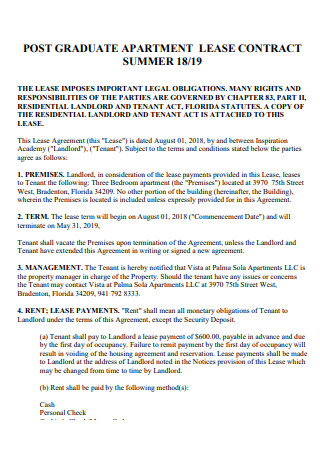
Post Graduate Apartment Lease Contract
download now -
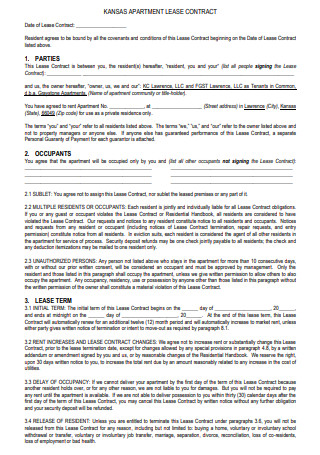
Basic Apartment Lease Contract
download now -
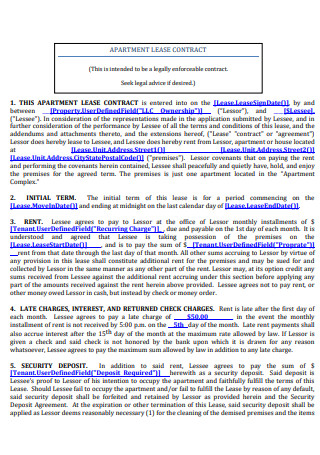
Apartment Lease Contract Example
download now -
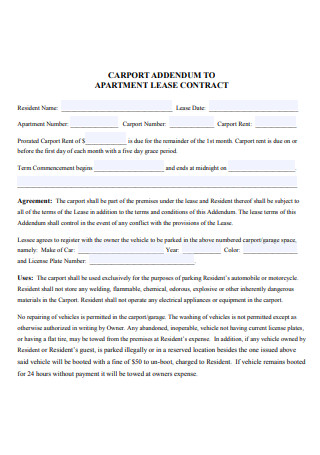
Formal Apartment Lease Contract
download now -
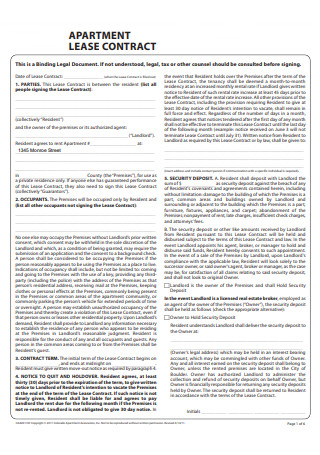
Standard Apartment Lease Contract
download now -
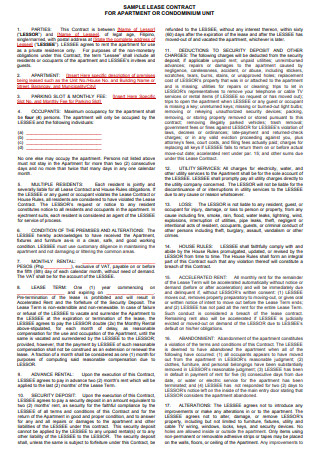
Sample Apartment Lease Contract
download now -
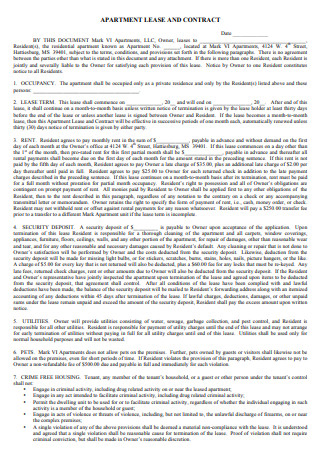
Printable Apartment Lease Contract
download now -
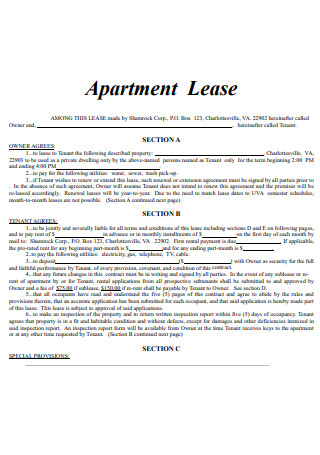
Apartment Lease Contract in PDF
download now
FREE Apartment Lease Contract s to Download
8+ Sample Apartment Lease Contract
What is an Apartment Lease Contract?
What is the Difference between a Lease Agreement and a Rental Agreement?
Types of Lease Agreement
Pros and Cons of a Short-Term and Long-Term Lease Arrangements
Advantages of a Lease Contract
Disadvantages of a Lease Contract
FAQs
What is the Difference between lease and rental agreement?
How Do You Write a Lease Agreement?
What are 2 types of Rental Agreements?
Sometimes, most aspiring homeowners would choose to settle for owning an apartment unit as they save up for a home of their own. In looking for an apartment, it is important that an individual is fully aware of what the terms and conditions are in owning an apartment. These terms and conditions are stated in an Apartment Lease Contract that must be thoroughly reviewed by the lessee to understand the conditions through which they would have to live in. In this article, we will expound more on your basic understanding of an Apartment Lease Contract as we provide samples to help give you an idea of what you should be looking to prioritize!
What is an Apartment Lease Contract?
An Apartment Lease Contract is simply a written legal document between a tenant or lessee and the landlord or the lessor although for this situation in particular the parties involved are referred to as lessor and renter. It is a document that states the terms and conditions that the lessee shall be bound with during their whole stay in the apartment unit. It is a testament that the lessee is in mutual agreement with the lessor that they are to make rent payments in exchange for staying over an apartment for a set period of time as indicated in the apartment contract.
As much as possible, an apartment lease contract provides all information about the space which lies more on the lessor’s hands to allow the renter to identify if they could live with the conditions of the area.
What is the Difference between a Lease Agreement and a Rental Agreement?
While both are legally binding once the parties involved proceed to signing their signatures in a contract, both agreements actually serve different purposes although their differences aren’t exactly on both ends of the spectrum that it produces grave repercussions if both terms are used interchangeably. The main difference between the two kinds of agreements simply lies in the length of the contract.
A lease agreement is a contract between a renter and a lessor that offers the renter to live in their desired space for a specified period of time usually ranging from about six months to a year. A rental agreement, on the other hand, is similarly a binding contract between a lessor and a lessee that offers a monthly payment of tenancy where the contract expires at the end of the month and automatically renews itself at the beginning for the following month unless the renter wishes to terminate the contract however, it should be kept in mind that notice of termination of contract must be given to the lessor a good few days before a renter officially leaves the premise or whatever is stated in the contract. Because of the flexibility provided by a rental agreement in the sense that it ends on a monthly basis and can be renewed, both the lessor and the renter can negotiate to change the terms of agreement in the contract provided that both parties are compliant to appropriate notice procedures.
A typical lease or rental agreement can include all of the following:
- Basic personal and contact information of the tenant or lessee and the landlord or lessor.
- The length and type of tenancy, the kind of payment agreement: if it’s a regular monthly payment (rental agreement) or bound to a fixed period of time (lease agreement)
- Cost of rent and amount of Security Deposit
- Payment plan that involves the payment schedule and terms of payment
- Rules and regulations that are to be strictly observed and the consequences if the tenant or lessee chooses to violate them.
Types of Lease Agreement
There are three basic types of lease agreements that you as renter can oblige yourself to commit to for as long as you are in the financial position of meeting the rental payments agreed upon regardless of the type and also are responsible to comply with the commitments in the agreements. The three basic types of lease agreement are: A short-term lease, long-term lease and subleasing.
Pros and Cons of a Short-Term and Long-Term Lease Arrangements
In deciding the kind of lease you want to sign, you must first take into consideration the circumstance which you are in and this mostly has to do with your finances. While both a short-term and a long-term lease are great options on their own, one can be more enticing if you were to think deeply. In this section of the article, we list down a few pros and cons between the two to help you choose which option best fits you. We begin by citing the pros of a short-term lease.
Pros of a Short-Term Lease
It offers more flexibility.
For lessees who are still in the midst of looking and are unsure of their current plans or the lack thereof, a short-term lease can be the most suitable type for you. It is ideal for lessees who are only in the area looking for temporary accommodation, travelling tourists who are not necessarily looking for a permanent place to stay, visiting a friend or family for a certain amount of time that still does not warrant for a year or so, or in the area due to work purposes.
It limits costs.
If your short-term lease is one that is month-to-month, you can avoid having to pay the remaining rent balance should you choose to move out of the area before the contract is up.
Cons of a Short-Term Lease
It offers less stability.
Our desire to own homes we can consider as ours mostly have a lot to do with appeasing our need for stability and security. If you have a family with you, constant changes might take a toll on the family and it can harm them mentally, emotionally and physically. In addition, if you were to renew the lease, additional costs may be incurred or you may not be offered a renewal regardless of how timely you make the payments.
It impacts the lessor’s profitability.
A disadvantage of a short-term lease to the lessor is that they are more vulnerable to vacancies due to the nature of the contract which is why most lessors would usually offer a long-term lease agreement as it secures them of a steady outlet for income.
Pros of a Long-Term Lease
It offers greater stability.
Long-term leases are ideal for lessees who are looking to commit to staying in the area for more than a year or so. This is best for families who want to truly have a feel of what it feels like to own a home that they could see themselves personalizing it to represent their family’s dynamics or those who wish to decorate the place as they can to make it more comfortable and personal to them. In addition, it is best for parents who wish to enroll their children in a school or university within the area of the property.
It may secure monthly rent discounts.
While not generally true for all lessors, some lessors can be lenient on charging discounts for the monthly rates when you choose to sign a long-term lease since the stable influx of income they are likely to obtain from it benefits them the most. With the chances of a lowered monthly rent, you can make clearer estimates in your financial plans that can help in the monthly budgeting of the household.
Cons of a Long-Term Lease
Termination of the contract is more expensive.
In the case that a personal reason comes up that needs you to move out before the contract is over, you can potentially be charged additional fees apart from the rent payments that you must still make as agreed upon in the contract.
The rent discounts are still a probability.
Charging discounts still lie in the hands of the lessor and they are the type to strictly make business, discounts are not as secured as you might think. With that in mind, there might be not much financial benefits when you sign a long-term lease contract.
Advantages of a Lease Contract
It provides stability.
If you are comfortable committing to long-term tenancy, a lease contract is the perfect type of contract for you since the contract duration usually lasts a year or so. If payments are promptly made and there is zero option of moving to someplace else, a lease agreement can offer consistency and comfortability to those who want to feel a semblance of homeownership as in the whole package deal that comes with owning a home.
For the lessors, lease contracts are most commonly offered as it reduces turnover costs in the sense that if a renter were to decide to move out before the contract is due to termination, they are still held accountable by the law to pay the rent costs for the remaining time until their contract is over or unless they can find another renter that can cover for the remaining period.
It offers lower rent costs.
Due to the longer tenancy, lessors offer lower rents for lessees who wish to sign a lease contract as lessors need not worry too much about excessive turnover costs from having to move renters out. While rent costs are lower, it does provide the lessor a stable influx of long-term income especially when a lease agreement reduces vacancies.
It prohibits changes in the contract.
With the market conditions tendency to fluctuate, lessees are assured that it does not change the cost of rent when they sign under a lease contract. Not only can rents escalate drastically, but property values can also rise; however, lessees under a lease contract are spared that. Because of this, apartment owners can develop their budget plans better and allocate their incomes with consistency knowing that at least for the rent payments, nothing will change. Not only can renters avoid surprises in the payment, but they are also spared from unnecessary changes in the terms and conditions of the contract made by the lessor that more often than not are advantageous to the lessors but at the brunt of it, the lessees who are left with no choice but to comply as sufficing the basic right to shelter still should remain a top priority especially during trying times, evident when the surge of the COVID-19 virus struck the whole world including the most developed nations and left those with no homes the most vulnerable of contracting the virus.
Landlords are also assured that tenants are not to vacate the apartment on their own volition as that would entail breach in the contract and consequences have to be placed.
It offers property purchase.
Once the contract has come to an end, a lessor can offer the renter to purchase the property through a rent to own agreement.
Disadvantages of a Lease Contract
It does not provide flexibility.
Even with sufficient notice, most lessees and lessors cannot make decisions that will evidently breach the contract that both parties have initially agreed upon. Unless a tenant agrees to pay for the remaining balance of the lease term, they can choose to move out of the apartment however, sometimes, that’s usually not an option most tenants would pick as it only entails additional costs.
It impacts the lessor’s profitability.
Regardless of the changes in the market conditions, the rental amount does not pick up on it because as mentioned, the lease contract locks the rental amount to be paid by the tenant until the end of the agreement. If property value were to increase during the duration of the contract that usually spans for at least a year, the tenants would still have to pay the agreed upon rental amount and this will negatively impact the landlord’s profitability since they could have been potentially earning more during the time when market value of property rose.
FAQs
What is the Difference between lease and rental agreement?
While both terms are used interchangeably and to a common individual not particular with the technicalities underlying the two, they actually serve different purposes that mostly has to do with the length of the effectivity of the agreement. A rental agreement is made on a monthly basis with chances of renewal at the beginning of every month and termination at the end with prior notice. A lease agreement on the other hand is more long-term and usually covers up to six to twelve months. Some lease agreements can span for 15 to 18 months if the renter were to opt for long-term type of lease agreement. Another key difference is that rent agreements are subject to change and so are the monthly rent payments depending on the lessor and the market conditions that govern the rental property’s home price. Lease agreements do not offer the same flexibility with the contract changes but they do offer stability in the rent payments.
How Do You Write a Lease Agreement?
A lease agreement is generally prepared by a lessor as they have the bigger responsibility of ensuring that the renters they make contracts with are able to abide by their terms in handling their property. A lease agreement usually has the following components: Basic personal and contact information The length and type of tenancy, if it’s a regular monthly payment or (rental agreement) or bound to a fixed period of time (lease agreement) Information on the property Cost of rent and Amount of Security Deposit Payment schedule and terms of payment Rules and regulations that are to be strictly observed and the consequences if the tenant or lessee chooses to violate them.
What are 2 types of Rental Agreements?
Rental agreements can be short-term agreements or agreements that can span for longer periods.
